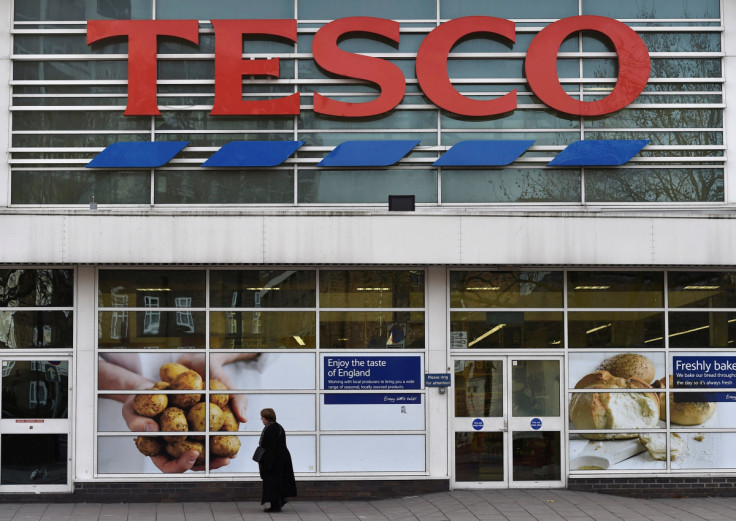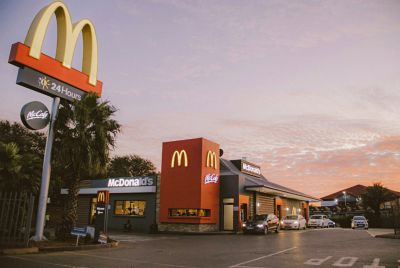Which? alerts regulator of potential illegal pricing practices at Tesco
Which? has accused Tesco of potentially breaching consumer protection laws by failing to display prices on the majority of its food and beverage promotions.

In a potential breach of consumer protection laws, Which? has accused Tesco of not clearly displaying prices on the majority of its food and beverage promotions. The consumer advocacy company has lodged a complaint with the competition regulator, urging Tesco to include unit pricing on its Clubcard promotions. Unit pricing allows customers to compare costs both in-store and online, aiding informed purchasing decisions amidst soaring food inflation.
Unit pricing, or the price per 100g or 100ml, for example, allows customers to compare prices both in-person and online, as well as between supermarkets, and to choose what to buy at the most affordable price, according to the consumer advocacy firm. This is especially crucial at this time when food inflation is at an all-time high.
According to Which?, Tesco's omission of unit pricing from its Clubcard offers may be deemed a "misleading practice" under the Consumer Protection From Unfair Trading Regulations of 2008 (CPRs). This move makes it difficult for customers to identify the lowest-priced items, potentially violating consumer rights. Which? calls on Tesco to swiftly implement unit pricing on Clubcard prices, providing time-pressed consumers with clarity and the ability to find the best discounts.
While the Price Marking Order of 2004 outlines the requirements for unit pricing, the CPRs also require businesses to refrain from "unfair commercial practices." According to these regulations, Which? contends, unit costs might be viewed as "material information" that the majority of consumers would want in order to make an informed choice regarding how to get the most value out of the goods they are purchasing.
While supermarkets in general struggle with unit pricing, according to Which?, Tesco stands out because it constantly excludes unit pricing from Clubcard incentives, which now make up almost all of its grocery-related promotions.
In contrast, Sainsbury's introduced a comparable program in April under the name Nectar Prices, which do include unit prices for both in-store and online purchases. For instance, Which? discovered a 700g bottle of Heinz tomato ketchup in Tesco for £3.90 (or 55.7p per 100g), as shown on the label. A large Clubcard label makes it clear that the bottle is on sale for £3.50 for the same 700g bottle, but the unit price, which would be 50p per 100g, is not stated.
On the shelf below, a 910g bottle of the exact same ketchup costs £3.99 for everyone (43.8p per 100g). The 910g bottle costs £3.99 and is the cheapest per 100g, however many customers might mistakenly believe that the Clubcard "offer" is the better price.
The pricing for a multipack of 12 x 25g bags of Walkers ready salted crisps costs £3.25, or £1.08 per 100g, when Which? examined two separate multipacks of these snacks from Tesco. According to the bottom label, 6 x 25g bags cost £1.75 for non-Clubcard holders (or £1.17 for 100g). In contrast to the ketchup, the pricing for those with a Clubcard was £1.50 for 6 x 25g bags, making it the greatest value. However, as with the ketchup, it was challenging for customers to make an informed choice.
Which? argues that by cutting out the unit price information from Clubcard offers, Tesco is putting its consumers at risk of overspending on their grocery purchases since they lack the knowledge necessary to make an educated decision. Such an omission may be aggravating the situation for those who are already having difficulty at a time when there is a crisis in the cost of food and many individuals are struggling to feed their families.
The Competition and Markets Authority (CMA) stated in 2015 that failure to display the unit price for the new, lower price for a reduced item could be considered a misleading omission under the CPRs, as it has the potential to constitute material information that the average consumer needs to make an informed decision. This was in response to Which?'s complaint about supermarket pricing.
The same defences, according to Which?, could be made against Tesco's Clubcard incentives. However, it would ultimately be up to the courts to determine if any particular case violated the law.
A series of proposals to enhance unit pricing in supermarkets were made in response to Which?'s 2015 super-complaint, but the recommendations had little effect because the rules and guidelines remained unchanged.
The CMA launched a fresh examination in January 2023 that would examine merchants' adherence to the law regarding unit pricing. Which? is requesting the regulator to take into account whether Tesco is in violation of the CPRs as part of its review when it reports the retailer to the CMA.
The CMA has stated that a report with recommendations for the government is expected to be released in the latter half of July. It claimed that the rising cost of living crisis made it crucial for customers to be able to evaluate products side by side.
Chancellor Jeremy Hunt stated last month that the government stands ready to alter pricing regulations and guidelines in light of the CMA's review. Which? has requested that the CMA look into Tesco's actions as part of its review and share the results with the Department for Business and Trade; it anticipates that the government will then take measures to resolve confusing pricing practices.
Tesco has approval for its labelling- Trading Standard
Trading Standards in Hertfordshire – where Tesco has its UK base – told Which? it had advised Tesco that its labelling complied with the Price Marking Order 2004. However, it did not specify whether it had taken into account potential CPR violations. It stated that its recommendations would be reevaluated this year and expressed the expectation that the CMA's evaluation would result in modifications that would boost clarity.
Which? has been urging all supermarkets to ensure that pricing is totally transparent "as part of its Affordable Food For All campaign" so that consumers can compare items easily and determine which offers the greatest value.
In order to prevent households, even those on a low income, from being compelled to pay exorbitant prices for fundamental consumables, Which? stated that supermarkets should also stock smaller branches and convenience stores with necessary budget-line products.
Sue Davies, head of food policy at Which?, highlighted the importance of explicit unit pricing during a time of escalating food prices and urged Tesco to prioritise its customers by promptly implementing unit pricing on all deals, including Clubcard promotions. The regulator's examination of unit pricing on supermarket member price plans is expected to address this issue and ensure transparency in pricing for consumers.
In addition, Davies stated that supermarkets should stock smaller branches and convenience stores with affordable essential products to prevent households, particularly those on low incomes, from facing excessive costs.
© Copyright IBTimes 2025. All rights reserved.






















